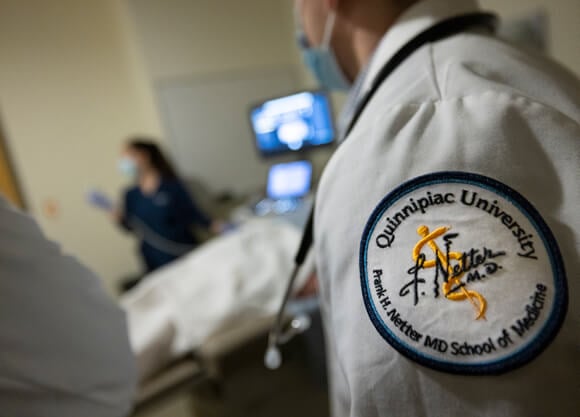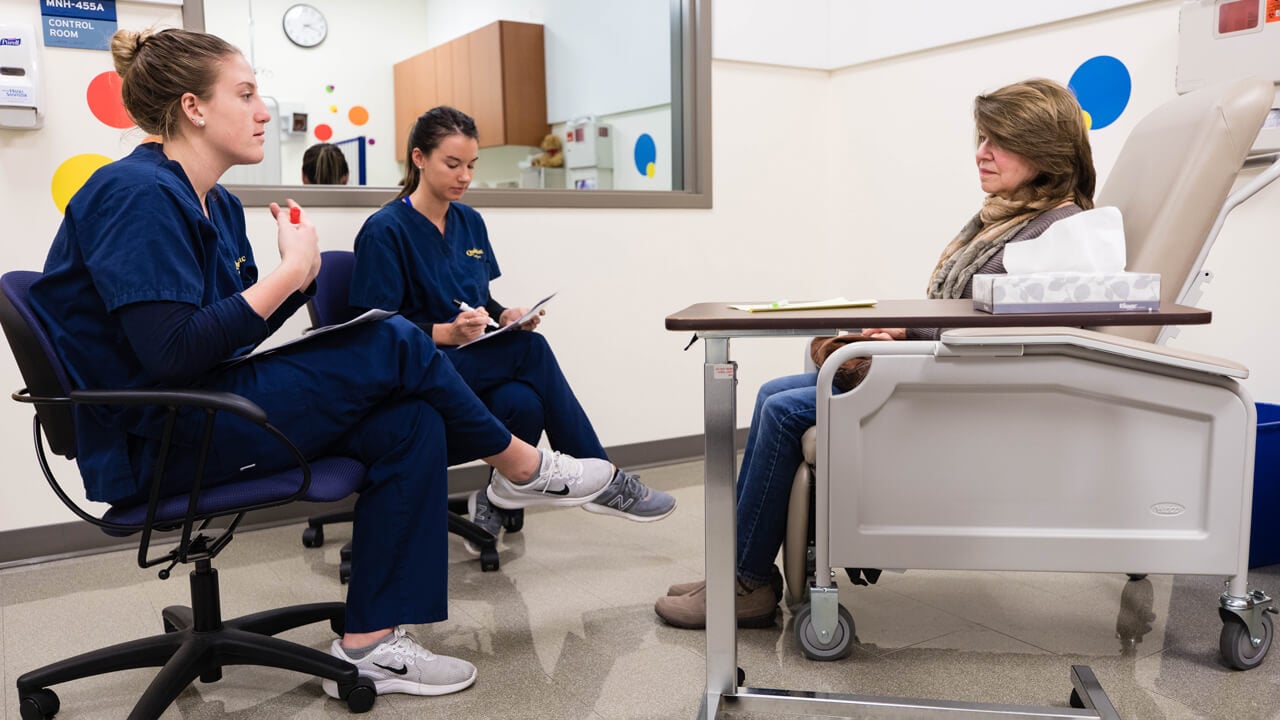This 7-week, online, asynchronous course is the first of two courses leading to the Graduate Certificate in Spanish Language for Medical Professionals. Designed for students with beginning to intermediate knowledge of Spanish, this program is ideal for working healthcare professionals including doctors, emergency medical technicians, emergency responders, hospital administrators, medical assistants, nurses, nutritionists, physical therapists, physician assistants, dentists, social workers and more.
Students review grammatical structures needed to interact effectively with patients, acquire intercultural awareness and learn essential medical and technical terminology while engaging in the rigorous practice of reading, writing, speaking and listening. All coursework is completed with the goal of providing better healthcare for Spanish-speaking patients as the need for healthcare professionals with the ability to interview patients, record medical histories, discuss diagnoses, prognoses, treatments and more in a culturally sensitive way continues to increase.
Topics include common cold and influenza, parts of the body, pain, diagnosing injuries, personal information, vital signs, family medical history, pediatric medical history, forms of medications and routes of administration, medication allergies and allergic reactions, asthma, special diets for patients, colonoscopy preparation, physical therapy and diabetes. This graduate course requires the completion of a final project in consultation with the instructor.
Project: “False Fluency” of Medical Interpreters: Consequences and Patients' safety
Recent studies reveal the existence of serious problems attributable to the lack of quality medical-health interpreting services. There is a misperception of bilingualism, considering that anyone who is bilingual or claims to have the ability to communicate in two or more languages can be a medical interpreter. Based on this information, students will complete a project from the perspective of healthcare professionals that involves applied research, speaking and writing; students should interview healthcare professionals about the quality of interpretation services available in Spanish for them to interact effectively with patients and any other related issues and problems they encounter. This project offers a unique opportunity to investigate and analyze existing problems and pitfalls in the field of medical interpretation and intercultural understanding.









